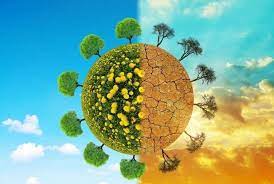The Importance of Environmental Conservation
Environmental conservation is crucial for the well-being of our planet and future generations. It involves the responsible use and management of natural resources to protect ecosystems, biodiversity, and the overall health of the Earth.
One key aspect of environmental conservation is preserving biodiversity. By safeguarding a variety of plant and animal species, we maintain the balance of ecosystems and ensure their resilience to environmental changes. Biodiversity also provides essential services such as pollination, water purification, and climate regulation.
Another critical component of conservation is reducing pollution and waste. Pollution from industries, agriculture, and households can have detrimental effects on air, water, and soil quality. By adopting sustainable practices and promoting recycling, we can minimise our impact on the environment and prevent further degradation.
Climate change is a pressing issue that underscores the importance of environmental conservation. Rising global temperatures, extreme weather events, and sea-level rise are all consequences of human activities that contribute to greenhouse gas emissions. Conservation efforts such as reforestation, renewable energy adoption, and carbon footprint reduction are essential in mitigating climate change.
Individual actions also play a significant role in environmental conservation. Simple habits like reducing energy consumption, using eco-friendly products, and supporting local conservation initiatives can collectively make a difference in preserving our planet for future generations.
In conclusion, environmental conservation is not just a choice but a necessity for sustaining life on Earth. Through collective efforts at local, national, and global levels, we can protect our natural resources, promote biodiversity, combat climate change, and create a healthier planet for all living beings.
Six Essential Tips for Environmental Conservation
- Reduce, reuse, and recycle to minimise waste.
- Conserve water by fixing leaks and using it wisely.
- Choose energy-efficient appliances and lighting.
- Use public transport, carpool, or cycle to reduce carbon emissions.
- Plant trees and support reforestation efforts.
- Minimise single-use plastics by opting for reusable alternatives.
Reduce, reuse, and recycle to minimise waste.
Reducing, reusing, and recycling are essential practices in environmental conservation that help minimise waste and promote sustainability. By reducing our consumption, finding creative ways to reuse items, and recycling materials whenever possible, we can significantly decrease the amount of waste that ends up in landfills or pollutes the environment. Embracing the “reduce, reuse, recycle” mantra not only conserves natural resources but also reduces energy consumption and greenhouse gas emissions associated with manufacturing new products. It is a simple yet effective way for individuals to make a positive impact on the planet and contribute to a cleaner, healthier environment for present and future generations.
Conserve water by fixing leaks and using it wisely.
Conserving water is a vital aspect of environmental conservation. By promptly fixing leaks and using water wisely, we can significantly reduce wastage and preserve this precious resource for future generations. Small actions like repairing dripping taps, using water-efficient appliances, and being mindful of our consumption habits can have a substantial impact on conserving water resources and promoting sustainability. Let’s all do our part in protecting this essential element of life by practising responsible water usage every day.
Choose energy-efficient appliances and lighting.
Selecting energy-efficient appliances and lighting is a simple yet effective way to contribute to environmental conservation. Energy-efficient appliances consume less electricity, reducing overall energy consumption and lowering carbon emissions. Similarly, opting for LED or CFL light bulbs not only saves energy but also extends the lifespan of the bulbs, reducing waste. By making these conscious choices in our daily lives, we can play a part in conserving resources and minimising our environmental impact.
Use public transport, carpool, or cycle to reduce carbon emissions.
Using public transport, carpooling, or cycling are effective ways to reduce carbon emissions and contribute to environmental conservation. By opting for these sustainable transportation methods, individuals can help decrease the reliance on fossil fuels and lower the overall carbon footprint associated with daily commuting. Not only do these choices promote cleaner air and reduce traffic congestion, but they also support efforts towards a greener and more sustainable future for our planet. Making small changes in how we travel can have a significant positive impact on the environment in the long run.
Plant trees and support reforestation efforts.
Planting trees and supporting reforestation efforts are powerful actions for environmental conservation. Trees play a crucial role in absorbing carbon dioxide, purifying the air, and providing habitats for diverse wildlife. By actively participating in tree planting initiatives and backing reforestation projects, individuals can contribute to combating climate change, enhancing biodiversity, and creating sustainable ecosystems for future generations to enjoy.
Minimise single-use plastics by opting for reusable alternatives.
Opting for reusable alternatives is a simple yet effective way to minimise single-use plastics and reduce environmental impact. By choosing products like reusable water bottles, shopping bags, and food containers, we can significantly decrease the amount of plastic waste that ends up in landfills and oceans. Making this conscious choice not only helps in conserving natural resources but also contributes to a cleaner and healthier environment for future generations.

